The 2024 UK Elections and the Fate of the Elgin Marbles

Πηγή Φωτογραφίας: Διαδίκτυο//It later transpired that in 2003 Blair was advised to consider a “long-term loan” of the Parthenon Sculptures to Greece to increase support for London’s bid for the 2012 Olympic Games, but of course nothing happened.
The United Kingdom is going to the polls on 4 July 2024 after the British Conservative Prime Minister, Rishi Sunak, called a general election. With a Labour victory under Sir Keir Starmer widely predicted after 14 years of Tory rule, one issue which may attract some interest (although not on the minds of most UK voters) is the fate of the Parthenon Sculptures currently held in the British Museum.
Back in 1997, when Tony Blair brought British Labour back into power, the expectation was that the marbles would be returned to Greece but those hopes were quickly dashed when the new Labour Government sheepishly adopted the traditional British cultural establishment line that the sculptures properly belonged in London.
It later transpired that in 2003 Blair was advised to consider a “long-term loan” of the Parthenon Sculptures to Greece to increase support for London’s bid for the 2012 Olympic Games, but of course nothing happened.
So will a Starmer Labour Government make a real difference this time round?
Since 2010 the UK Conservative Party in government has steadfastly refused to even countenance the return of the sculptures, even when it was revealed that at least since 2022 the British Museum has been involved in ongoing discussions with the Greek Government for an enlightened “cultural partnership” involving the Parthenon Sculptures.
We all remember the unedifying spectre of Rishi Sunak in December 2023 ducking for cover and refusing to meet with Kyriakos Mitsotakis because the visiting Greek Prime Minister had the ‘temerity’ to raise the issue of return on the BBC.
The Greek PM did, however, meet with Sir Keir Starmer in what appeared to be a convivial discussion.
In reports that emerged prior to their meeting it was suggested that Starmer may be “favourable” to finding a legal formula that will allow for the eventual return of the Marbles to Athens.
In reality, it must be acknowledged that the fate of the Parthenon Sculptures is not high on the agenda of any UK Government, although a Labour Government under Sir Keir Starmer is unlikely to throw up the kind of metaphorical roadblocks that his Tory predecessors, including the notably erratic Boris Johnson, have erected in the past, publicly questioning the right of the British Museum to be talking to their Greek counterparts and even suggesting an export ban if some kind of deal was struck with the Greeks.
Sir Keir Starmer’s approach is likely to be more diplomatically measured and considered:
“We’re sticking with the existing law, but if a loan deal that is mutually acceptable to the British Museum and the Greek government can be agreed, we won’t stand in the way.”
In the past, consecutive UK culture ministers have also been content to read from their departmental script that the sculptures were legally acquired from Lord Elgin who in turn had obtained permission from the Ottoman authorities to pillage the Acropolis monuments. And for good measure, the sculptures are vested in the British Museum and there are no plans to amend the British Museum Act to allow the Museum’s trustees to return the sculptures even if they wanted to.
As recently as 22 May 2024 the current Culture Secretary, Lucy Frazer KC, fronted up to a hearing before the Parliamentary Culture, Media and Sport Committee. In response to a question by the Conservative MP, Jane Stevenson, about the “Elgin Marbles” and how their return would allegedly usher in a “slippery slope to start returning artefacts” the Culture Secretary’s response was sadly predictable:
“My views are there are only certain circumstances in which you can transfer objects. The British Museum trustees are responsible for the objects. They were legally acquired and we have no intention of changing the law in relation to those issues.”
And her reaction to suggestions that the British Museum may be prepared to do a ‘deal’ with the Greeks, possibly involving a long-term partnership, also came as no surprise:
“I think it is very important that the Greek Government recognise that those objects are owned and have been legitimately acquired. Objects are loaned from time to time, but it is fundamental that our ownership is recognised.”
Will this imperial cultural mindset continue to pervade Anglo-Hellenic relations?
Bristol MP Thangam Debbonaire currently serves as the Shadow Secretary of State for Culture, Media and Sport. She will be up against the UK Green party co-leader Carla Denyer in what may be a hotly-contested seat but if she prevails the accomplished cellist is likely to become the new Culture Secretary.
Since the Tories returned to power in 2010, there have been no less than twelve culture ministers: Jeremy Hunt, Maria Miller, Sajid Javid, John Whittingdale, Karen Bradley, Matt Hancock, Jeremy Wright, Nicky Morgan, Oliver Dowden, Nadine Dorries, Michelle Donelan and, finally, Lucy Frazer.
Ms Debbonaire has recently made her feelings known on X (formerly Twitter) about the sad decline in cultural administration in the UK, especially the proverbial ministerial “merry-go-round” in Westminster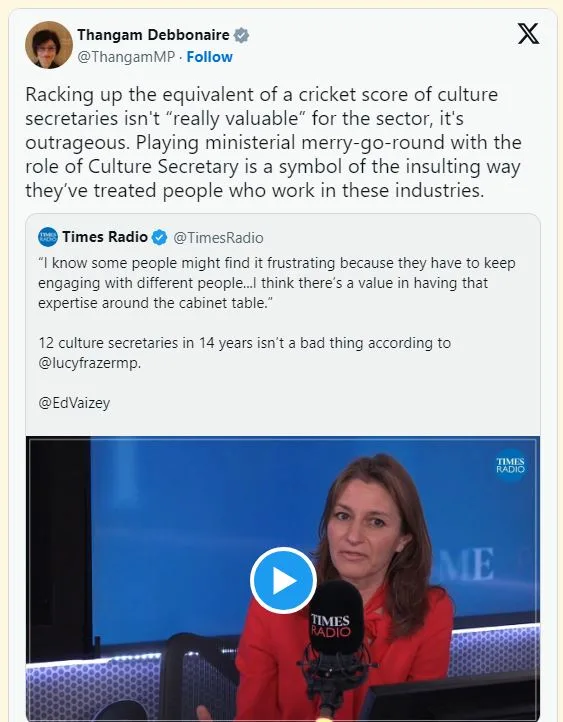
Back in 2018 Thangam Debbonaire actually called for the removal of the statue of the 17th-century slave trader Edward Colston, declaring that the city of Bristol “should not be honouring people who benefited from slavery”. The Colston statue was eventually toppled in June 2020 by anti-racism protestors and dumped in Bristol harbour.
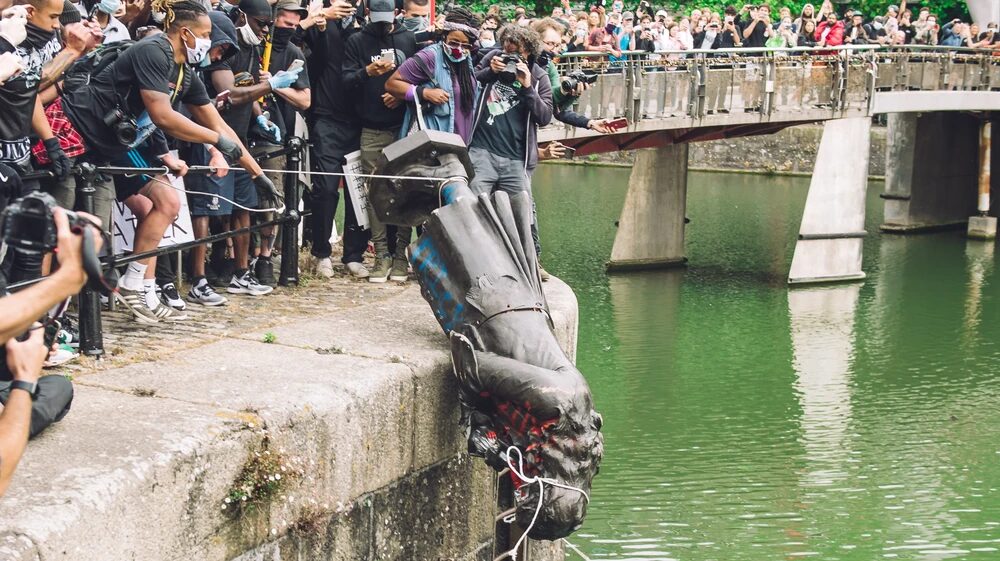
This occurred at a time when a former Culture Secretary, and now Deputy Prime Minister, Oliver Dowden, was devising the so-called ‘retain and explain’ doctrine for problematic statues and monuments as well as contested museum objects in response to the growing decolonisation and restitution movement.
In an interview that she gave to the BBC in November 2023, Thangam Debbonaire repeated the position stated by her party leader when asked about the Parthenon Sculptures:
“We want to concentrate on what really matters to people and on the specific issue (of the Elgin Marbles) I trust the British Museum and the Greek authorities will continue to negotiate and come to a good agreement”.
Ms Debbonaire also declared that as Culture Secretary she would essentially take a ‘hands-off’ approach so that, for example, she would have no business telling an arts organisation, including a museum, what they should hang on their walls – something which, in her words, the “Tories seem to ignore all the time”.
For the Greek Culture Minister, Dr Lina Mendoni, who has occupied that position since 2019 and previously served as General Secretary of the ministry for over a decade, this would come as a refreshing change
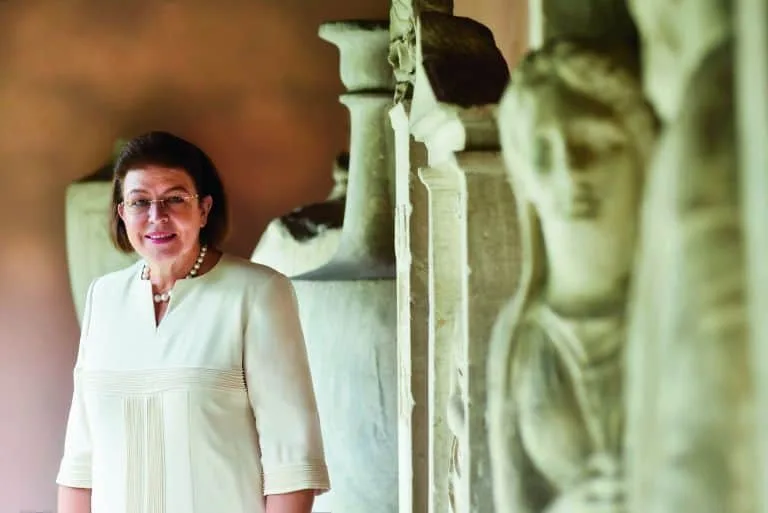
Whilst diplomacy still has a way to go, at least with a new Labour government (and, hopefully, with adults in the room) there may be progress towards a more meaningful and constructive engagement between the parties and the birth of an enlightened cultural partnership with the Greeks to resolve this long-standing cultural heritage dispute.
Only then will these incredible sculptural works be reunited in the Acropolis Museum within sight of the magnificent Parthenon temple which they once adorned.
George Vardas is the Arts and Culture Editor and is also a long-time advocate for the reunification of the Parthenon Sculptures. He is the co-Vice President of the Australian Parthenon Association and a co-founder of the Acropolis Research Group.
Διαβάστε όλες τις τελευταίες Ειδήσεις από την Ελλάδα και τον Κόσμο












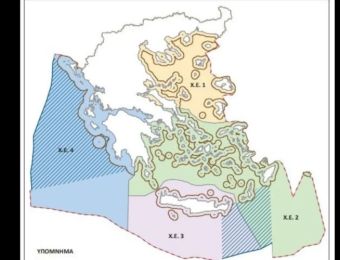








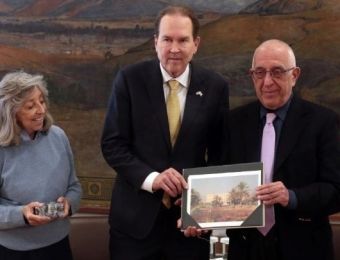
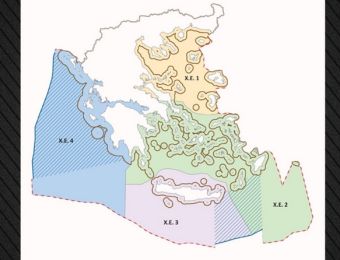
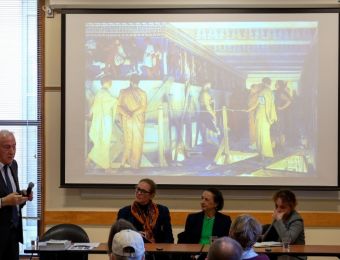






Το σχόλιο σας